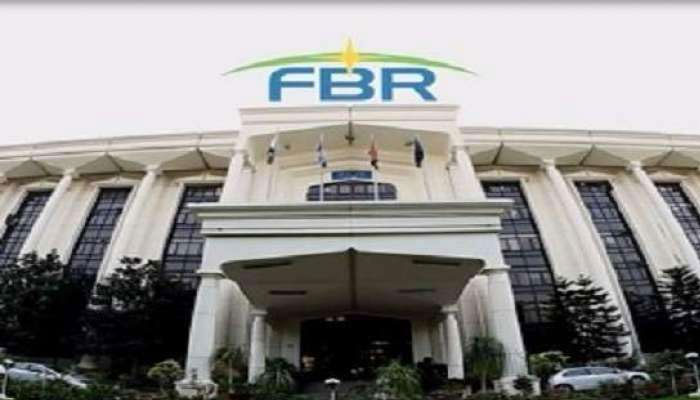Unanswered questions as FBR autonomy comes under scrutiny
ISLAMABAD: The IMF and other international financial institutions have been emphasising making FBR autonomous. However, the proposed structure makes the IRS and Customs Board subordinate to oversight by federal secretaries and private members, thereby further curtailing autonomy.
This poses a serious question: why do the caretakers prefer to keep everything under the carpet in the name of overhauling the tax machinery, having no clue about what is being planned in the restructuring plan of the FBR?
Relevant tax authorities and experts have raised voices and asked pertinent questions for the caretaker government. However, the caretakers, behaving like chair-takers, show no concern about being accountable or answerable to anyone.
(1) What is the wisdom of subordinating the tax-collecting machinery to federal secretaries with absolutely no tax background?
(2) How will the issue of conflict of interest in the appointment of private members be resolved?
(3) Who will take credit for the collection of income tax, sales tax, and FED at the import stage? If the answer is the IRS, then what justifies having a customs board collect and report only around 10% of federal taxes?
(4) What effect will it have on the morale of IRS and Customs officers when they see their top brass in a subservient role to non-professionals?
(5) If the restructuring plan is positive, then why is it being kept under wraps, and why are the minutes or decisions of the meeting not in the public domain?
(6) If the Customs Board will be making decisions on tariffs (as the reports available so far do not indicate that tariff changes will be the mandate of the revenue division), why shouldn’t the IRS board make policies relating to income tax, sales tax, and FED?
(7) Tax collection is a function of policy and administration. If policy is not under the IRS and Customs board, then who should be responsible for achieving revenue targets, and wouldn’t it lead to shifting blame between administration and policy?
(8) If, as reported, the Customs workforce was consulted on the restructuring plans, why was the IRS kept in the dark?
(9) The fragmentation of tax collection between imports and domestic transactions does not consider that economic transactions cannot be fragmented. It needs to be realised that imported raw materials and finished goods are consumed in the domestic economy. If these are cleared at the import stage at under-invoiced values, they will remain underpriced in the local market, compromising domestic collection. To collect due taxes, it is imperative to integrate and develop linkages between imports and domestic transactions rather than further fragmenting them.
(10) If the way to go is to separate customs and IRS, then why is the UK still running “Her Majesty’s Revenue and Customs,” formed by the merger of the Inland Revenue and HM Customs and Excise, which took effect on April 18, 2005?
-
 Suspect Kills Six Across Florida Before Taking His Own Life
Suspect Kills Six Across Florida Before Taking His Own Life -
 AI Helps Researchers Identify 2,000-year-old Roman Board Game Stone
AI Helps Researchers Identify 2,000-year-old Roman Board Game Stone -
 Inside Kate Middleton, Prince William’s Nightmare Facing Andrew Mountbatten-Windsor
Inside Kate Middleton, Prince William’s Nightmare Facing Andrew Mountbatten-Windsor -
 Margaret Qualley Shares Heartfelt Confession About Husband Jack Antonoff: 'My Person'
Margaret Qualley Shares Heartfelt Confession About Husband Jack Antonoff: 'My Person' -
 Savannah Guthrie Shares Sweet Childhood Video With Missing Mom Nancy: Watch
Savannah Guthrie Shares Sweet Childhood Video With Missing Mom Nancy: Watch -
 Over $1.5 Million Raised To Support Van Der Beek's Family
Over $1.5 Million Raised To Support Van Der Beek's Family -
 Paul Anthony Kelly Opens Up On 'nervousness' Of Playing JFK Jr.
Paul Anthony Kelly Opens Up On 'nervousness' Of Playing JFK Jr. -
 Diana Once Used Salad Dressing As A Weapon Against Charles: Inside Their Fight From A Staffers Eyes
Diana Once Used Salad Dressing As A Weapon Against Charles: Inside Their Fight From A Staffers Eyes -
 Video Of Brad Pitt, Tom Cruise 'fighting' Over Epstein Shocks Hollywood Fans
Video Of Brad Pitt, Tom Cruise 'fighting' Over Epstein Shocks Hollywood Fans -
 Jelly Roll's Wife Bunnie Xo Talks About His Huge Weight Loss
Jelly Roll's Wife Bunnie Xo Talks About His Huge Weight Loss -
 Margot Robbie Reveals Why She Clicked So Fast With Jacob Elordi
Margot Robbie Reveals Why She Clicked So Fast With Jacob Elordi -
 Piers Morgan Praised By Ukrainian President Over 'principled Stance' On Winter Olympics Controversy
Piers Morgan Praised By Ukrainian President Over 'principled Stance' On Winter Olympics Controversy -
 Halsey's Fiance Avan Jogia Shares Rare Update On Wedding Planning
Halsey's Fiance Avan Jogia Shares Rare Update On Wedding Planning -
 Instagram Head Adam Mosseri Says Users Cannot Be Clinically Addicted To App
Instagram Head Adam Mosseri Says Users Cannot Be Clinically Addicted To App -
 James Van Der Beek Was Working On THIS Secret Project Before Death
James Van Der Beek Was Working On THIS Secret Project Before Death -
 Las Vegas Father Shoots Daughter's Boyfriend, Then Calls Police Himself
Las Vegas Father Shoots Daughter's Boyfriend, Then Calls Police Himself




